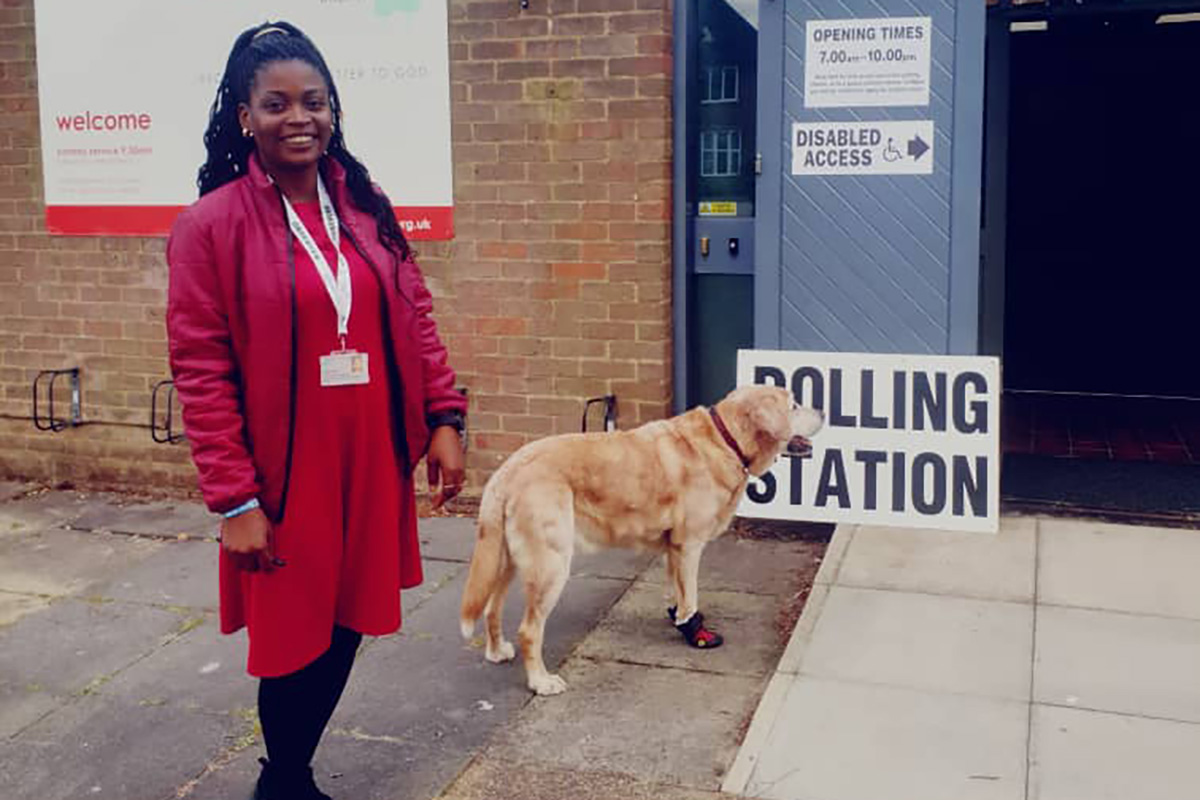Labour’s Victory: A Shift in Global Politics
July 7by Lilian Efobi
As an election observer with Democracy Volunteers for the United Kingdom (UK) 2024 election, I was privileged to observe the electoral process in four constituencies in South East London: Hemel Hempstead, South West Hertfordshire, Chesham & Amersham and Welwyn Hatfield.
The election was characterized by high voter turnout, with citizens flocking to the polls from 7 am to 10 pm to exercise their democratic rights. The atmosphere was vibrant, with voters eager to vote for their preferred candidates. Notably, the election was marked by high efficiency and organization, with only a handful of instances where voters were denied due to lack of valid identification or ineligibility. This was a significant improvement from previous elections, thanks to the implementation of recommendations from Democracy Volunteers, such as the acceptance of various forms of identification for voting.

The outcome of the UK election leaves us with certain questions such as its implication for democracy in the UK and its implication for Global Politics!
The high voter turnout indicates a healthy level of citizen engagement and interest in the democratic process. It also showed the resilience of democratic institutions in the UK, to constantly uphold the principles of democracy, one of which, is a free and fair election. The acceptance of various forms of identification for voting as recommended by Democracy Volunteers report, shows inclusivity and accessibility for all. The use of electronic scanners to scan ballot papers by some polling centres also highlighted technological inclusion.
The landslide victory of the Labour Party in the 2024 election, aside from a change in the 14 years of conservative government, also means a change in policies which will impact the UK’s economy, healthcare, education, and migration. The new sheriff in town also indicates new perspectives and ideas, which will work towards implementing Labour’s promises of promoting wealth creation, investment, and infrastructure. The new change in government may also affect Brexit (the UK’s relationship with the EU, which will be strengthened because Labour has been pro-European).

A crucial effect of the change in government is its implication on International Relations. Leaders of countries across the world will extend congratulations to the new Prime Minister and express their willingness to collaborate with the new administration. A shift towards a more pacifist approach will lead to reduced military interventions, commitment to NATO and nuclear deterrent, and focus on diplomatic solutions by the Labour Party. Also, the new government says it will renew the UK’s focus on multilateralism and international cooperation, after an assessment of its alliances and partnerships.
The Commonwealth has always been a pivotal component of the UK’s foreign policy, and this significance will endure despite changes in government. The Labour party, equally dedicated to strengthening international development work within the Foreign, Commonwealth & Development Office, is committed to leveraging expertise and focus, particularly in priority areas such as fostering economic transformation, addressing unsustainable debt, empowering women and girls, promoting conflict prevention, and unlocking climate finance.
As one of its manifesto promises, Labour has promised to end the hostile environmental policy, scrap the migrants worker cap, and introduce a humane approach to asylum seekers rather than the Rwanda treaty. This policy will bring potential economic benefits for the UK economy, increased migration and more. The migration policy will also encourage other countries to adopt inclusive approaches to migration and put the UK at the forefront of global migration negotiations.
My active role as an election observer in multiple UK elections has been crucial in bolstering democracy in the UK and beyond, and I owe this opportunity to the invaluable platform provided by Democracy Volunteers. The evolving political landscape in the UK has garnered international attention, igniting anticipation regarding its potential impact on global relations, security, and economic collaboration.






